
Susan B. Kesmodel, MD, FACS, of the University of Miami, describes 3 methods by which breast surgical oncologists can strategize to reduce the incidence of lymphedema in patients undergoing surgery for breast tumors.

Your AI-Trained Oncology Knowledge Connection!


Susan B. Kesmodel, MD, FACS, of the University of Miami, describes 3 methods by which breast surgical oncologists can strategize to reduce the incidence of lymphedema in patients undergoing surgery for breast tumors.

Take a look back at some of the important news and notes from last week in the world of oncology, featuring news about prostate cancer, breast cancer, lung cancer, and more.

As part of an industry-wide assessment of indications based on accelerated approval, Roche in consultation with the FDA has decided to withdraw the indication for atezolizumab in patients with urothelial carcinoma following platinum-based chemotherapy.

“Neoadjuvant endocrine therapy trials are feasible with relatively low toxicity,” Kelly K. Hunt, MD, FACS, FSSO, said during the 38th Annual Miami Breast Cancer Conference®.

Pal detailed the phase 2 trial of lenvatinib at 2 starting doses plus everolimus to treat patients with renal cell carcinoma.

Adam Brufsky, MD, PhD, presented data investigating immunotherapeutic options in the neoadjuvant setting for patients with triple-negative breast cancer.
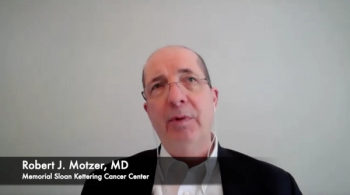
The medical oncologist at Memorial Sloan Kettering Cancer Center explained how this trial of MK-6482 plus lenvatinib versus cabozantinib in patients with advanced clear cell renal cell carcinoma could possibly improve the standard of care in this setting.

Sara A. Hurvitz, MD, FACP, of the University of California, Los Angeles, discussed a number of emerging novel therapies with the potential to treat patients with HER2-positive metastatic breast cancer in the third-line setting.

Allowing for the use of antiemetic prophylaxis and anti-diarrheal medication in the phase 3 KX-ORAX-001 study reduced study drug-related gastrointestinal adverse events.

Phyllis Morgan, PhD, sat down with CancerNetwork® to discuss health disparities during Colorectal Cancer Awareness Month.

Data from the phase 2 ZUMA-5 trial supported the approval of axicabtagene ciloleucel, a chimeric antigen receptor T-cell therapy, as a treatment for patients with follicular lymphoma in the third-line setting.

At the Miami Breast Cancer Conference, Debu Tripathy, MD, reviewed adaptive therapy for the adjuvant treatment of patients with HER2-positive, early-stage breast cancer.

Data focusing on patients seeking breast surgical procedures determined that broad skill sets are valuable for general surgeons practicing in rural areas, as breast surgeries only represented a small proportion of total surgical procedures conducted.

The addition of neratinib to capecitabine improved progression-free survival and central nervous system outcomes in patients with HER2-positive metastatic breast cancer with central nervous system disease.

More patients with early-stage estrogen receptor–positive breast cancer with high recurrence scores received chemotherapy following radiation in a single-institution study, and this resulted in a low recurrence rate across all patients examined.

The analysis of the KEYNOTE-119 study presented at the Miami Breast Cancer Conference, hosted by Physicians’ Education Resource®, LLC®, found trends estimating a significant role for tumor cell expression in PD-L1 as a predictive biomarker for pembrolizumab efficacy.
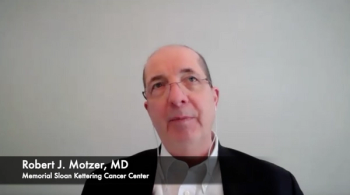
The medical oncologist at Memorial Sloan Kettering Cancer Center highlighted what clinicians treating patients with advanced ccRCC should understand about this trial in progress.
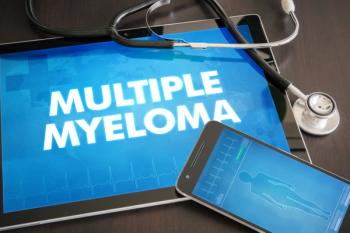
“The importance of diverse representation cannot be underscored enough and is critical to ensure that safe and effective products are available to the [United States] patient population,” wrote the study authors, who were led by Nicole Gormley, MD.

A new drug application for pafolacianine sodium injection was granted priority review by the FDA for use in detecting ovarian cancer lesions during surgical procedures.
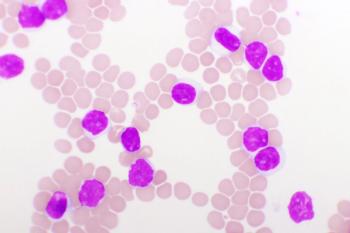
The GREEN trial analyzed treatment with obinutuzumab monotherapy or obinutuzumab plus chemotherapy for patients with previously untreated or relapsed/refractory chronic lymphocytic leukemia.

The combination of liposomal doxorubicin, docetaxel, and trastuzumab with metformin produced positive activity and an acceptable safety profile as neoadjuvant treatment for HER2-positive breast cancer.

The agency approved the supplemental new drug application to include the first-line treatment of adult patients with metastatic anaplastic lymphoma kinase-positive non-small cell lung cancer.
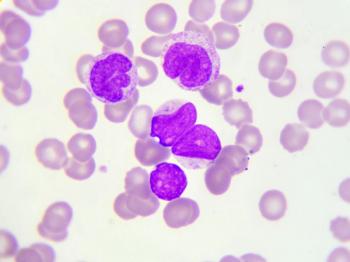
In this study, investigators sough to determine the incidence of CRLF2 rearrangements and IKZF1 deletions in Hispanic versus non-Hispanic children with B-cell acute lymphoblastic leukemia.

Amgen announced data from a phase 3 study that found blinatumomab showed prolonged event-free survival compared to consolidation chemotherapy in patients with relapsed acute lymphoblastic leukemia.

Given the current study findings, investigators suggested intratherapy personalization of chemoradiotherapy may possibly facilitate marked de-escalation of radiotherapy in patients with HPV-related oropharyngeal cancers.

In a phase 2 study, adavosertib plus gemcitabine showed signs of activity in platinum-resistant or platinum-refractory advanced high-grade serous ovarian cancer, including rare histological subtypes of ovarian cancer.

The expert from SUNY Downstate Medical Center highlighted areas in which he believes treatment for renal cell carcinoma will advance.

CancerNetwork® was joined by 2 clinicians from Moffitt Cancer Center to discuss why some patients do not respond to CAR T-cell therapy, despite the significant promise of the treatment modality.

“Our results support further study of serial molecular imaging along with combined [histone deacetylase inhibitors; HDACi] and [aromatase inhibitor; AI] therapy (such as ECOG-ACRIN study E2112), to further delineate the role of HDACi and potential biomarkers in AI-refractory ER+ advanced breast cancer,” wrote the study authors.

“The [phase 1b/2] data [are] promising and support the current phase 3, multicenter trial, which we hope will lead to FDA approval and a new much-needed treatment option for this patient population,” said David Sallman, MD.